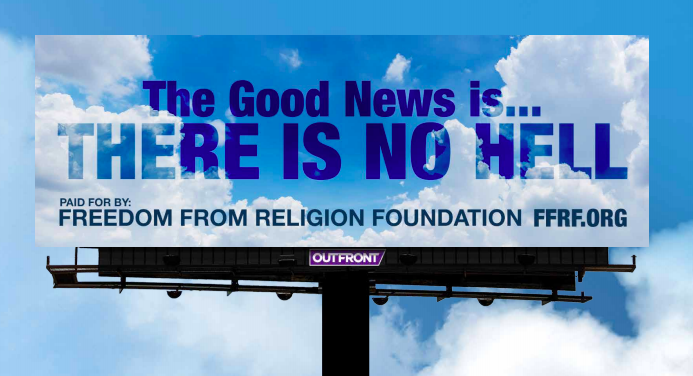signalmankenneth
Verified User
When members of the small Pennsylvania chapter of Secular Democrats of America log on for their monthly meetings, they’re not there for a virtual happy hour.
“We don’t sit around at our meetings patting ourselves on the back for not believing in God together,” said David Brown, a founder from the Philadelphia suburb of Ardmore.
The group, mostly consisting of atheists and agnostics, mobilizes to knock on doors and make phone calls on behalf of Democratic candidates “who are pro-science, pro-democracy, whether or not they are actually self-identified secular people,” he said. “We are trying to keep church and state separate. That encompasses LGBTQIA+, COVID science, bodily autonomy and reproductive rights.”
Brown describes his group as “small but mighty,” yet they’re riding a big wave.
Voters with no religious affiliation supported Democratic candidates and abortion rights by staggering percentages in the 2022 midterm elections.
And they’re voting in large numbers. In 2022, some 22% of voters claimed no religious affiliation, according to AP VoteCast, an expansive survey of more than 94,000 voters nationwide. They contributed to voting coalitions that gave Democrats victories in battleground states such as Pennsylvania, Wisconsin and Arizona.
The unaffiliated — often nicknamed the “none's” — voted for Democratic House candidates nationwide over Republicans by more than a 2-1 margin (65% to 31%), according to VoteCast. That echoes the 2020 president election, when Democrat Joe Biden took 72% of voters with no religious affiliation, while Republican Donald Trump took 25%, according to VoteCast.
For all the talk of the overwhelmingly Republican voting by white evangelical Christians in recent elections, the unaffiliated are making their presence felt.
Among all U.S. adults, 29% are none's — those who identify as atheist, agnostic or “nothing in particular” — according a 2021 report by the Pew Research Center. That’s up 10 percentage points from a decade earlier, according to Pew.
And the younger the adults, the more likely they are to be unaffiliated, according to a 2019 Pew analysis, further signaling the growing clout of the none's.
https://www.yahoo.com/news/non-religious-voters-wield-clout-071320874.html

“We don’t sit around at our meetings patting ourselves on the back for not believing in God together,” said David Brown, a founder from the Philadelphia suburb of Ardmore.
The group, mostly consisting of atheists and agnostics, mobilizes to knock on doors and make phone calls on behalf of Democratic candidates “who are pro-science, pro-democracy, whether or not they are actually self-identified secular people,” he said. “We are trying to keep church and state separate. That encompasses LGBTQIA+, COVID science, bodily autonomy and reproductive rights.”
Brown describes his group as “small but mighty,” yet they’re riding a big wave.
Voters with no religious affiliation supported Democratic candidates and abortion rights by staggering percentages in the 2022 midterm elections.
And they’re voting in large numbers. In 2022, some 22% of voters claimed no religious affiliation, according to AP VoteCast, an expansive survey of more than 94,000 voters nationwide. They contributed to voting coalitions that gave Democrats victories in battleground states such as Pennsylvania, Wisconsin and Arizona.
The unaffiliated — often nicknamed the “none's” — voted for Democratic House candidates nationwide over Republicans by more than a 2-1 margin (65% to 31%), according to VoteCast. That echoes the 2020 president election, when Democrat Joe Biden took 72% of voters with no religious affiliation, while Republican Donald Trump took 25%, according to VoteCast.
For all the talk of the overwhelmingly Republican voting by white evangelical Christians in recent elections, the unaffiliated are making their presence felt.
Among all U.S. adults, 29% are none's — those who identify as atheist, agnostic or “nothing in particular” — according a 2021 report by the Pew Research Center. That’s up 10 percentage points from a decade earlier, according to Pew.
And the younger the adults, the more likely they are to be unaffiliated, according to a 2019 Pew analysis, further signaling the growing clout of the none's.
https://www.yahoo.com/news/non-religious-voters-wield-clout-071320874.html

